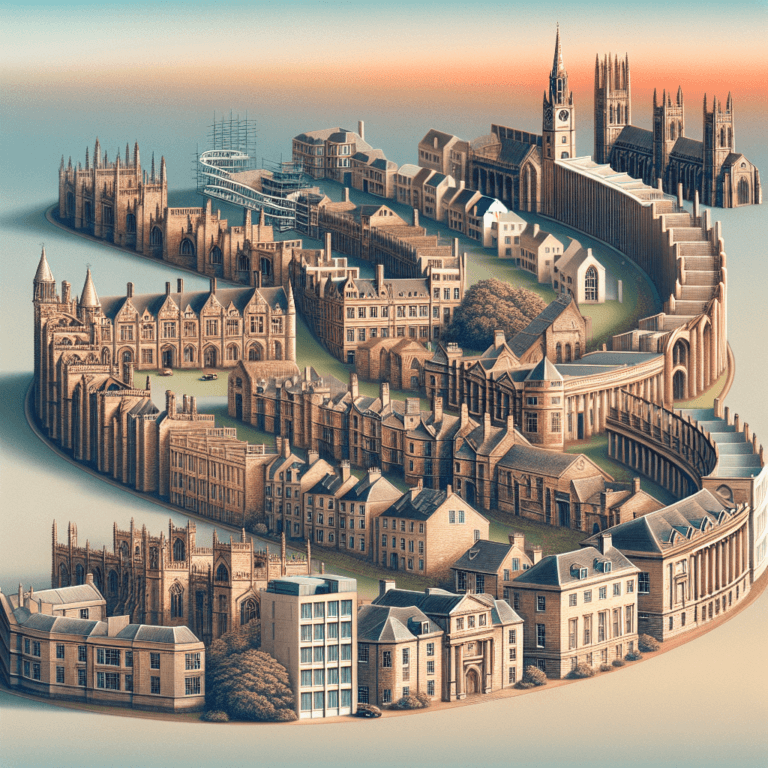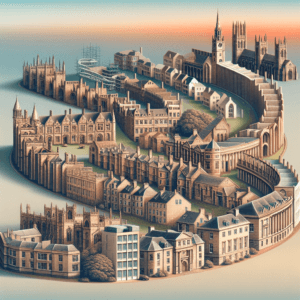The Evolution of Higher Education in the United Kingdom
Higher education in the United Kingdom has undergone significant transformation over the centuries, shaped by socio-economic changes, legislative reforms, and evolving societal needs. This evolution reflects broader trends in society as well as local responses to educational demands.
Early Beginnings
The roots of higher education in the UK can be traced back to the medieval period, with universities like Oxford and Cambridge established in the 12th and 13th centuries, respectively. Initially, these institutions were ecclesiastical in nature, predominantly focusing on theology, law, and medicine. The university curriculum was heavily influenced by scholasticism, which emphasized dialectical reasoning and the pursuit of knowledge through philosophical inquiry.
During this time, access to higher education was limited to a small elite, primarily men from privileged backgrounds. This exclusivity marked the beginning of a long-standing tradition wherein higher education was characterized by social stratification.
The Renaissance and Enlightenment
The Renaissance (14th to 17th century) and the Enlightenment (17th to 19th century) periods brought about a profound change in educational philosophy and practice. Universities began to embrace a more secular approach, welcoming subjects such as the sciences, the humanities, and the arts into their curricula. This shift was fueled by the growth of humanist thought and a burgeoning interest in empirical research.
The establishment of non-religious institutions, such as University College London in 1826, further democratized access to higher education. This institution was notable for admitting students regardless of their religious beliefs, paving the way for broader access and the inclusion of more diverse perspectives in academic discourse.
Industrial Revolution and Expansion
The Industrial Revolution in the 18th and 19th centuries catalyzed the expansion of higher education. As Britain transitioned towards an industrial economy, the need for skilled workers and scientifically educated individuals became paramount. This demand prompted the establishment of polytechnics and technical institutes aimed at providing practical training and applied sciences.
During this period, the concept of the "university for the people" began to take shape. The 19th century saw the founding of several new universities, including those in Manchester, Liverpool, and Birmingham, reflecting an increasing commitment to higher education as a public good.
The 20th Century and Widespread Access
The 20th century marked a pivotal moment for higher education in the UK, characterized by significant reforms and the expansion of access. The 1944 Education Act, often referred to as the Butler Act, aimed to provide free secondary education and expanded opportunities for further education. This act laid the groundwork for increased university enrollment across all social classes.
In the 1960s, the Robbins Report recommended the expansion of higher education to accommodate a growing population. This led to the establishment of numerous universities and polytechnics, fundamentally changing the landscape of higher education. By the end of the century, participation rates had dramatically increased, reflecting a more inclusive and diverse educational system.
The Modern Era: Globalization and Technological Innovation
The late 20th and early 21st centuries have seen higher education in the UK confront new challenges and opportunities. Globalization has influenced academic collaborations, research initiatives, and student mobility. The UK has become a prominent destination for international students, enriching its academic environment with diverse perspectives.
Technological advancements play a crucial role in shaping contemporary education. The rise of online learning platforms, digital resources, and blended learning models has transformed how education is delivered and accessed. Institutions have adapted their teaching methodologies to incorporate these innovations, further enhancing the learning experience.
Current Trends and Future Directions
In recent years, higher education in the UK has faced various challenges, including funding constraints, debates over tuition fees, and concerns regarding the quality of education. The ongoing discourse regarding the value of a degree versus vocational training reflects broader societal shifts toward employability and practical skills.
Looking ahead, higher education in the UK is likely to continue evolving in response to changing economic conditions, technological advancements, and the growing demand for lifelong learning. Institutions are increasingly focusing on interdisciplinary studies and partnerships with industries, ensuring that graduates are equipped to thrive in an ever-changing job market.
Overall, the evolution of higher education in the United Kingdom is a testament to its resilience and adaptability. As it continues to transform, the focus remains on creating inclusive, high-quality educational experiences that meet the needs of a diverse and dynamic society.
ma education in uk,#Evolution #Higher #Education #United #Kingdom







